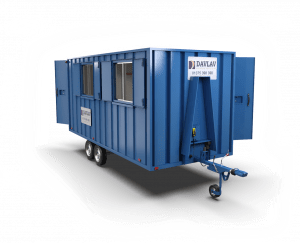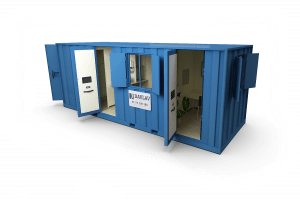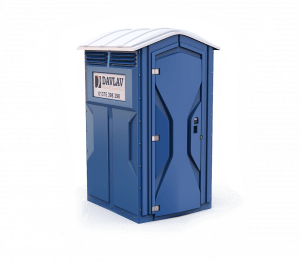Welfare
Providing Welfare Facilities for more than 25 Years
Welfare Unit Hire - Everything You Need To Know
Define Welfare
Welfare as a noun simply means “physical and mental health and happiness, especially of a person” according to Cambridge Dictionary. In the context of welfare facilities, the meaning of “welfare” is taken to be “physical health (and happiness)”.
What do you mean by ‘welfare facilities’?
Welfare facilities are those that are necessary for the well-being of people, such as washing, toilet, rest and changing facilities, and somewhere clean to eat and drink during breaks. They are deemed necessary for the physical health (and happiness) of human beings.
The UK Health and Safety Executive (HSE) provides guidance for employers on welfare provisions making it mandatory for employers to provide ‘adequate’ and appropriate welfare facilities to their employees while they are at work as per the requirements of the Workplace (Health, Safety and Welfare) Regulations 1992.
What are ‘adequate’ welfare facilities?
‘Adequate’ welfare facilities means people must be provided with:
- Enough toilets and sinks for the people expected to use them (they should not have to queue for a long time to use the toilet);
- Separate facilities for men and women where possible, otherwise lockable doors for unisex welfare facilities;
- Clean toilets in terms of waterproof walls and floors (tiles do well) to make them easy to clean
- Toilet paper, and for women, a means of disposing sanitary dressings
- Toilets that are well lit and ventilated
- Hot and cold running water
- Enough soap
- A sink basin large enough to wash hands and even forearms
- A means for drying hands – paper towels are fine but a hot air dryer is better
- Showers where necessary, typically for construction workers or anyone that needs to particularly dirty work
- Consideration for people with disabilities
Additionally, adequate welfare facilities also include arrangements for meal breaks, such as a seating arrangement that is clean and located such that food will not get contaminated. There also need to be washing facilities in the vicinity with a means of heating food or water for hot drinks, all while maintaining good hygiene standards.
What is a welfare unit?
A welfare unit is a compact and capable way of providing adequate welfare facilities to employees to not only comply with a legal requirement, but also to ensure your team remains happy and in good physical health.
Welfare units, which are also called welfare cabins, are self-contained, self-sufficient, standalone units that can be either static or mobile.
Where is a welfare unit used?
Although a welfare unit can be installed virtually anywhere, it is typically used at construction sites, roadworks, railway maintenance works, telecom projects, building projects, company premises, outdoor laboratories, archaeological sites, engineering sites and restricted access areas.
What is a mobile welfare unit?
A mobile welfare unit is a standalone welfare unit that is portable and can easily be towed across sites. If your company is moving between different locations frequently, a towable (mobile) welfare unit would be used to ensure fast and efficient relocation whenever it is required. Its self-contained design and portability makes it easy to position exactly where needed at any given point in time. This is the main reason why they are widely used at roadworks.
What is a static welfare unit?
A static welfare unit is a standalone welfare unit better suited for long-term use, such as building, engineering or construction projects as they will remain in the same position where they are placed for the duration of their hire. They are made of steel so they can be robust and secure.
What is a portable toilet?
A portable or a mobile toilet is made up of a toilet seat, a holding tank, a flushing mechanism and a pressure system. It can easily be moved from one place to another without much effort and without the need for pre-existing services such as sewage disposal or water mains, although there can also be provisions for such pre-existing services.
There are different types of portable toilets such as chemical toilets, mains-connected toilets and Containex toilets. They may also be available in single and double configurations. Portable toilets usually require regular service to replenish toilet paper, water and cleaning to retain good hygiene standards.
Portable toilets are known by various other names in the UK such as:
- Tardis; after the police telephone booth from the Doctor Who TV show because they tend to resemble it in terms of its design and colour.
- <redacted>; a British and European Community registered trademark for a company that supplies portable toilets.
What is a chemical toilet?
A chemical toilet collects waste in a holding tank and uses chemicals to neutralise or minimise odours. Chemical toilets are usually self-contained and portable, which means they can easily be moved. It is structured around a small tank that needs to be emptied frequently and because it is self-contained, it is not connected to a hole in the ground or a septic tank or plumbed into any municipal system. When the tank is emptied, the contents are pumped into sewage or directed to a treatment plant.
Is a chemical toilet a type of welfare unit?
While chemical toilets, or any type of portable toilets, are used for the ‘welfare’ of people (see definition above), they would not satisfy the HSE requirements of ‘adequate welfare facilities’ (also elaborated above) on their own. Depending on the number of employees you wish to serve, you will need to combine it with other amenities and possibly install multiple portable toilets to fulfil legalities. If you speak to an experienced supplier they will be able to guide you properly based on your specific needs.
What is a mains connected toilet?
A mains connect toilet is a type of portable toilet that connects to sewage and mains, therefore requiring low levels of maintenance. Because it connects directly to the water supply, it benefits from a recirculating flush system and hand wash facilities if a power supply is also available.
Will I need to order a bowser if I get a welfare unit?
If water supply is limited on your site, you may be offered a fresh water bowser when you call your supplier. Make sure you give them all your requirements and limitations to secure a packaged deal.
Why do I need tanker services?
When you hire a welfare unit, depending on the type you get you may need tanker services to clear portable toilet holding tanks, cess pits, septic tanks, holding tanks or gulley’s.
Do we buy or hire a welfare unit?
If you hire a welfare unit for a very long time, after a certain period the cost would add up so much that it would make more sense to just buy a welfare unit. However, this is seldom the case and most companies find welfare unit hire to be more economical than a purchase. If you need a welfare unit long-term, then speak to us.
What is Davlav’s track record with welfare units?
Davlav is a market leader in the world of welfare unit suppliers in the UK. We have more than 25 years of experience in this industry delivering HSE approved, grade ‘A’ welfare facilities across the nation.
With a focus on high quality service delivery and exceeding customer expectations, we are fortunate to have had customers who have been with us for decades. Every order placed with Davlav is backed by well-trained support staff members, and all toilets and welfare units are cleaned and maintained in first class condition throughout the course of their use.



